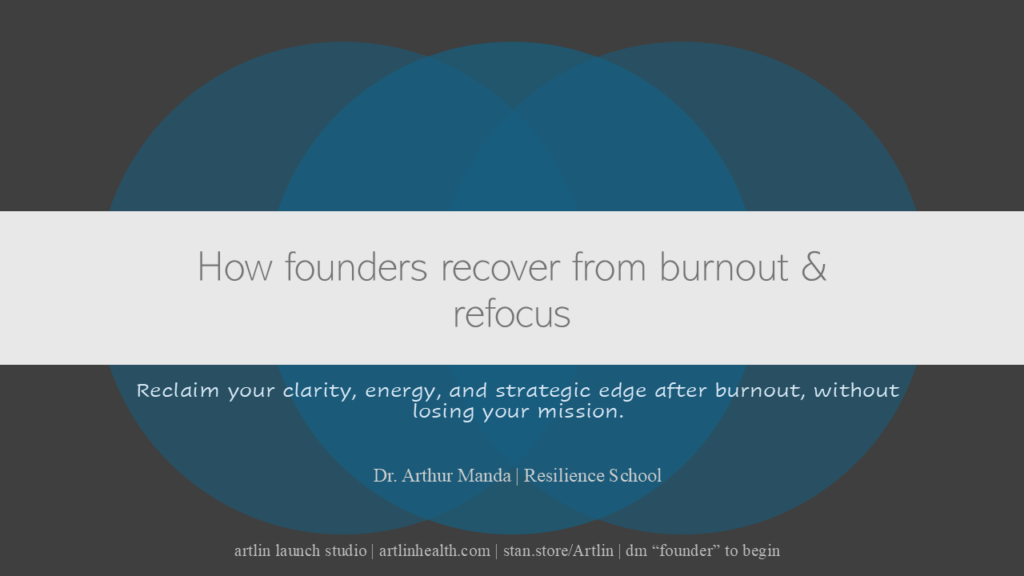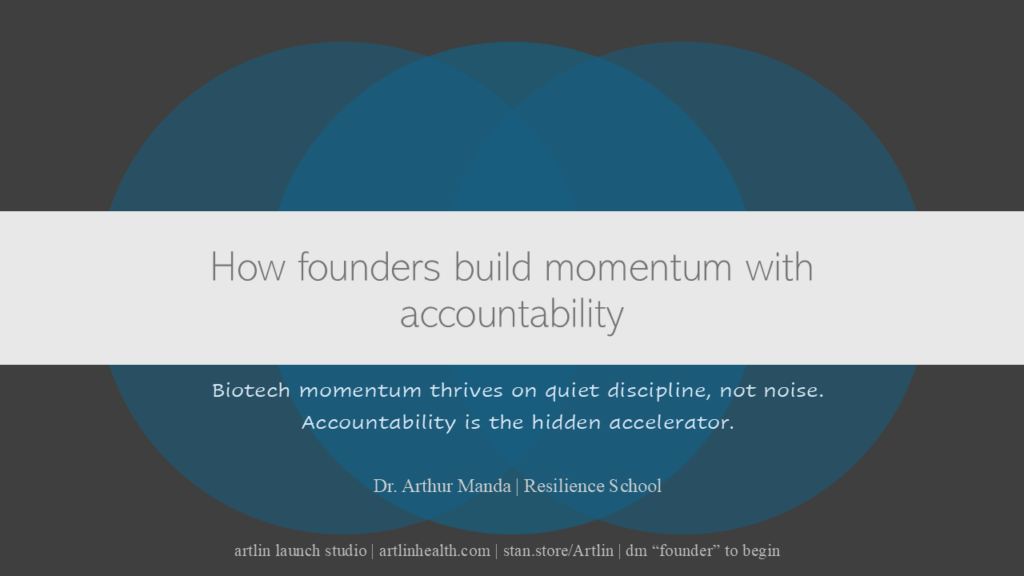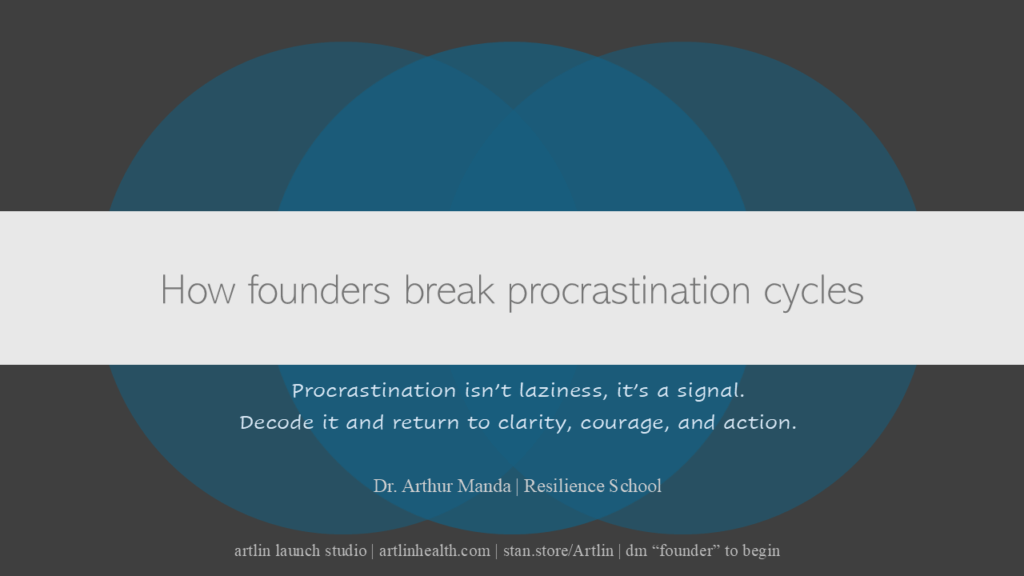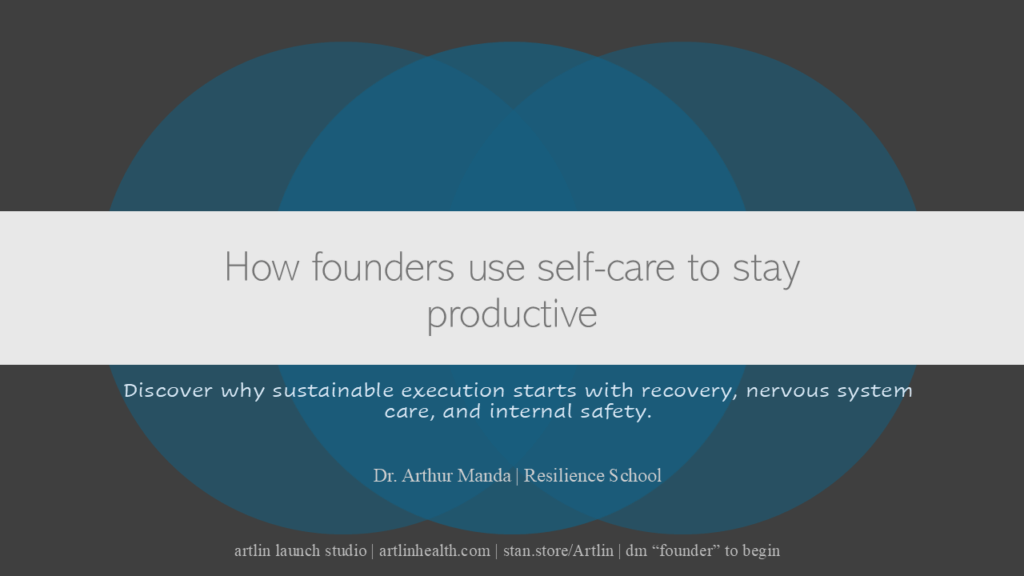You didn’t come this far just to collapse.
Burnout is not failure. It’s a biological checkpoint — a signal that the pace, pressure, or pattern you’ve been living under is no longer sustainable. In biotech, where complexity and timelines collide with ambition, burnout becomes a near-universal experience.
But it doesn’t have to be your endpoint. It can be your recalibration.
What burnout really is (and isn’t)
Burnout isn’t just fatigue. It’s soul dislocation.
- You’re still working, but it feels robotic.
- You’re still building, but it feels meaningless.
- You’re still showing up, but you’re gone.
It’s not that you can’t continue. It’s that the founder version of you that began this journey is no longer aligned with where you are now.
Biotech founders burn out because the mission is big, but the nervous system isn’t being rebuilt to carry it.
Signs you’re in burnout (even if you look productive)
- Numbness replaces passion
- Brain fog replaces clarity
- Resentment replaces purpose
- Chronic physical fatigue
- Low tolerance for complexity
- Quiet disconnection from your own vision
This is not weakness. It’s your system saying: “Something must change.”
What causes burnout in biotech founders
1. Chronic overcoupling with urgency
When everything is urgent, nothing is meaningful.
2. Disembodiment
You’re in your head, your pitch deck, your next raise — but no longer in your body.
3. Loss of internal permission
You stopped feeling allowed to rest, question, or say “not yet.”
4. Isolation masked as leadership
You think you have to hold it all, so you say nothing. And now you feel like no one gets it.
5. The “hero trap”
You’re trying to be the savior of your team, your company, your space — but it’s killing your creative core.
The burnout recovery process
Burnout doesn’t resolve by pushing through. It dissolves through strategic nervous system reset and identity integration.
Here’s how biotech founders begin to recover:
1. Stop fighting the signal
Burnout isn’t the enemy. It’s an invitation to change your rhythm. The faster you surrender, the faster you can rebuild.
2. Build rituals of restoration
Add micro-repairs to your day:
→ 2 minutes of stillness
→ intentional breath before a decision
→ midday nervous system check-in
→ walking without input
3. Repattern your pace
Start practicing life at the speed of clarity — not comparison.
It’s not about how much you can carry. It’s about how aligned your energy is with your execution.
4. Reconnect to your why (from the body, not the brand)
Drop back into your real origin story. The vision you had before the pressure built up. Reclaim what mattered before it became a pitch deck.
5. Seek co-regulation
Healing happens faster in safe presence. Speak the burnout. Share the load. Don’t hide it. You can be a founder and still ask for help.
Burnout is not the end — it’s the edge
Every biotech founder hits this wall.
The question is: do you collapse… or recode the architecture that got you here?
Burnout is not proof you’re weak — it’s proof you’ve outgrown the way you were operating.
You don’t need more hustle. You need a new nervous system design.
Ready to rebuild from center?
This is what Artlin Launch Studio (ALS) was built for.
Inside ALS, we don’t just optimize strategy — we restore founders.
We recalibrate your energy, architecture, and pace.
You exit collapse loops and re-enter clarity.
DM “Launch Studio” or visit https://stan.store/Artlin
You’re not broken. You’re being rebuilt.






